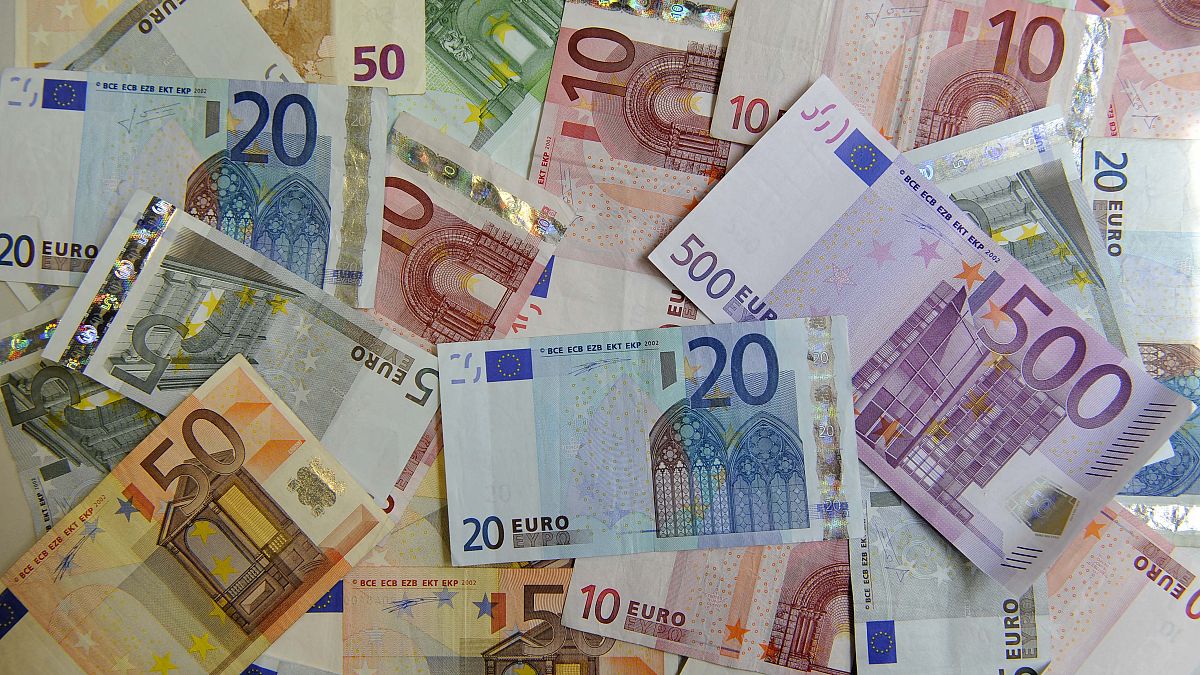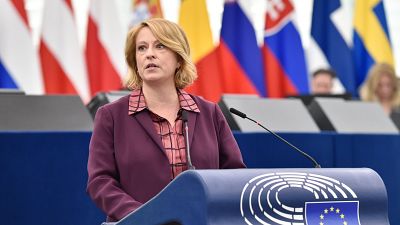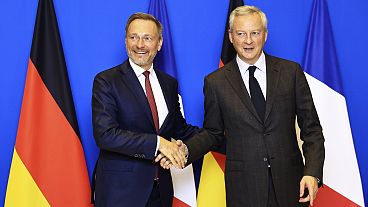The landslide vote heralds a return to fiscal responsibility after the pandemic era – but some worry new norms could kill vital green investment
MEPs today (23 April) formally approved new fiscal rules for the EU, brushing aside opposition from trade unions and civil society organisations who fear a return to the austerity era of reduced public spending.
The revision was approved 359-166 with 61 abstentions, after several years in which strict Brussels budget controls were largely abandoned due to the pandemic.
"This reform constitutes a fresh start and a return to fiscal responsibility at the same time,” Markus Ferber (Germany/European People’s Party), one of the MEPs who led work on the new laws, said ahead of the vote, adding that the rules still need to be enforced.
“When you have control of your budget, you do not need austerity, and therefore people are confusing one thing with the other,” Ferber told lawmakers during the last full session before the Parliament rises ahead of June elections.
EU budget rules have proved a political battleground within the euro area – with frugal member states such as Germany and the Netherlands wary of encouraging what they see as profligacy in fellow eurozone members such as Greece and Italy.
Governments struck a deal in December on the new proposals after months of wrangling, and a version was agreed with the European Parliament shortly after.
Despite a broad consensus across the political spectrum on the need for clearer, simpler and more flexible fiscal rules, some left-wing MEPs fear they could crimp investment.
“Voting for these new rules is a straitjacket for all European countries,” Philippe Lamberts (Belgium/Greens) said on Tuesday.
Under the new rules, governments will have to keep budget deficits under 3% of GDP– which critics say leaves member states with a public funding gap worth billions of euros.
Only three EU countries – Denmark, Ireland and Sweden – will be able to meet their estimated green and social investment gaps in 2027, according to a recent study published by the European Trade Union Confederation.
Looking at spending demands such as healthcare, housing and education, ETUC estimates that governments will need an extra €300-420bn a year (2.1-2.9% of EU GDP) annually to meet green and social goals over the next few years.
“Europe risks repeating mistakes of the past, focusing on arbitrary debt and deficit ratios rather than prioritising an economy that works for the wellbeing of people and planet,” Laura de Bonfils, secretary general at the umbrella organisation Social Platform, told Euronews.
But many MEPs welcome a return to fiscal responsibility.
“What we have achieved is not perfect,” said EU Economy Commissioner Paolo Gentiloni told lawmakers. “It's a good compromise, the result of the determination by all to advance and improve the current legislative work.”
Margarida Marques (Portugal/Socialists and Democrats), who worked with Ferber to agree the text, appeared to agree – despite highlighting flexibility, transparency and a focus on social issues.
“All of us had to make exemptions, many of them were difficult,” Marques said during the debate, adding: “However, for a reform to be effective, it needs to be accepted by everyone".
The proposal, already tentatively agreed by lawmakers and member states in February, is now expected to be nodded through by agriculture ministers meeting next week.



